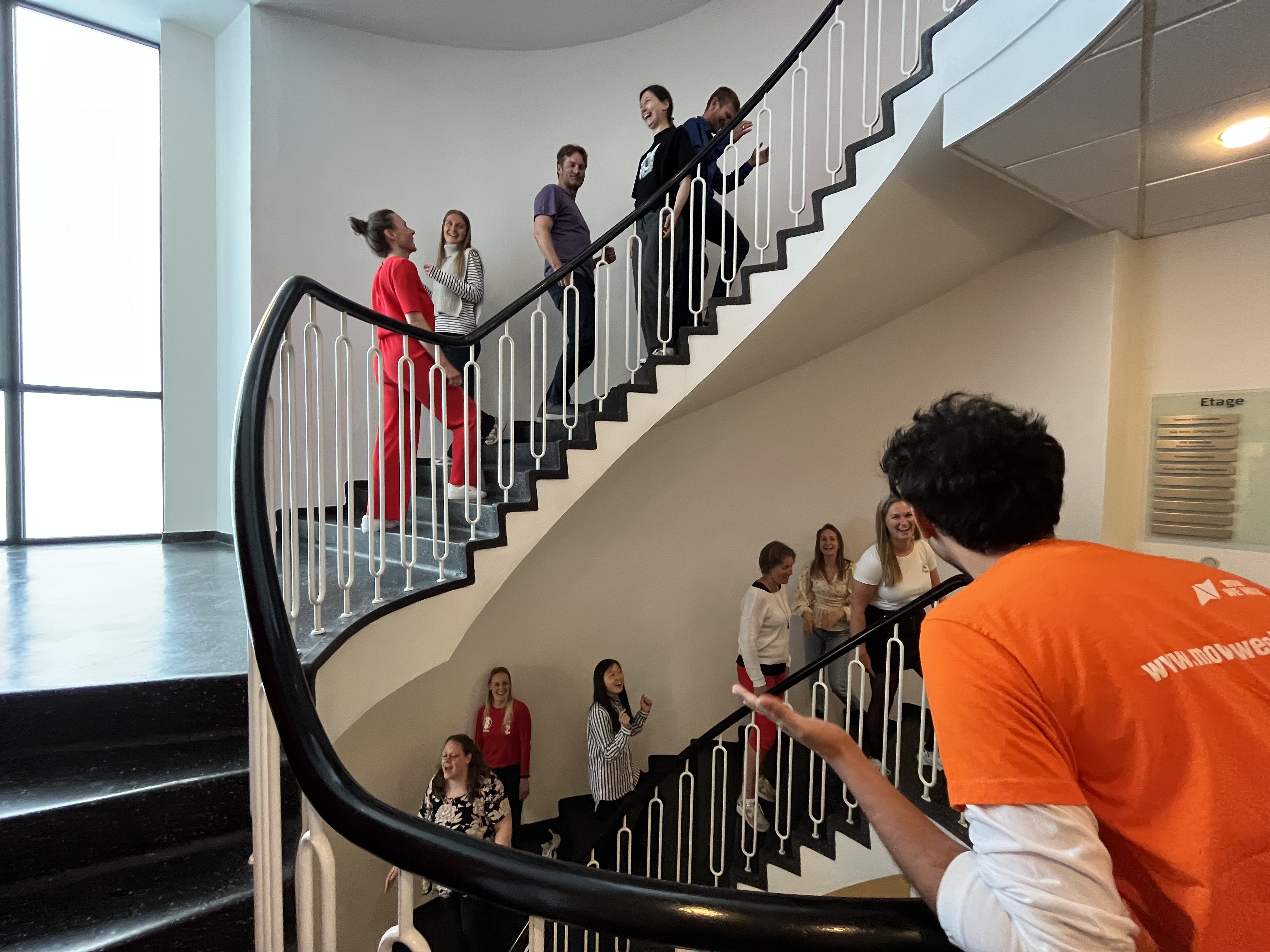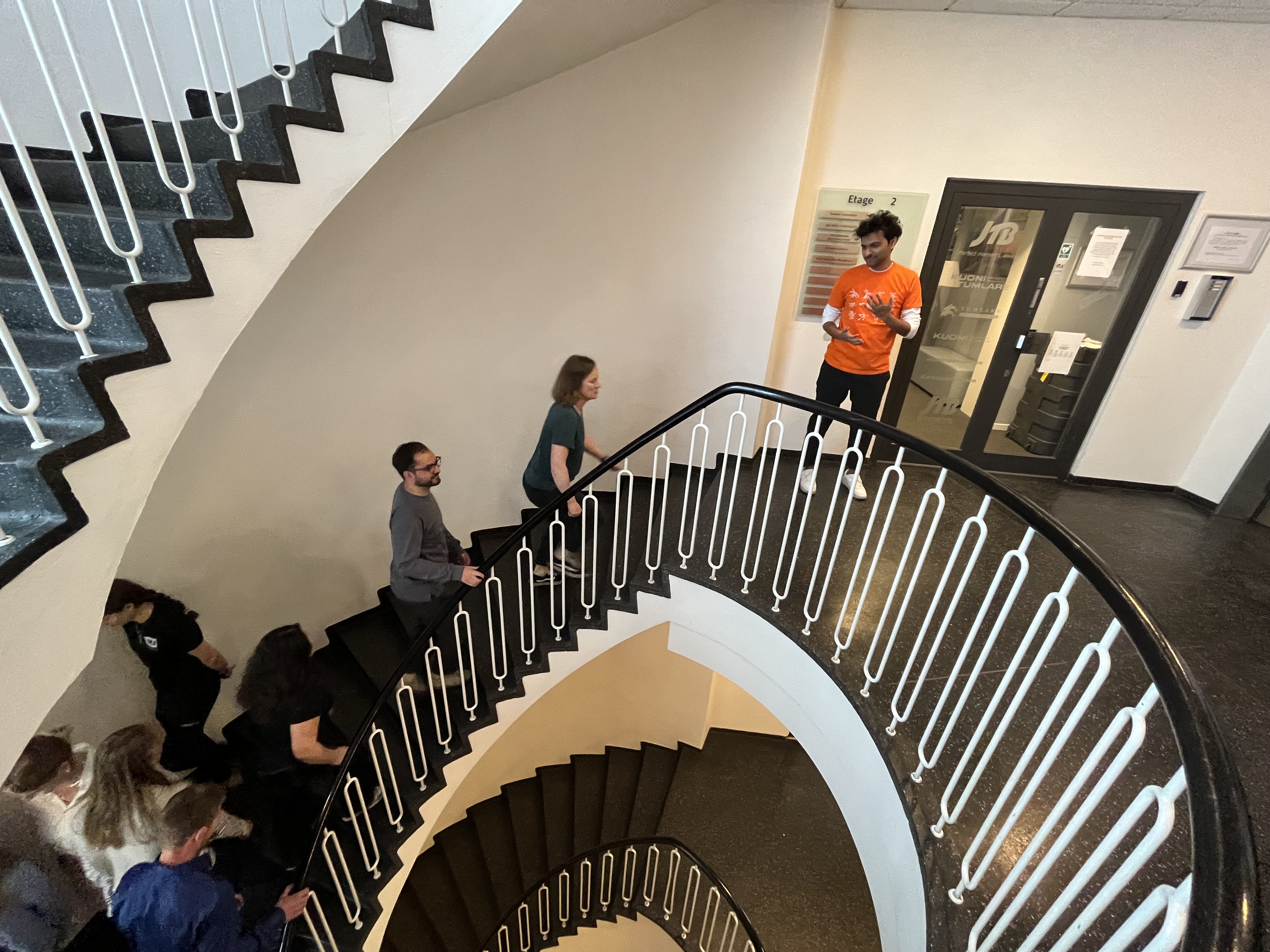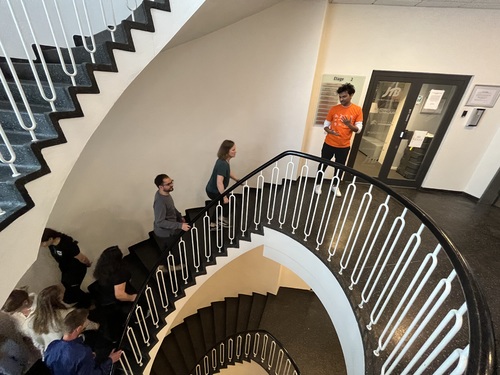#UseTheStairs to #BeActive during a brain break at your office or school
01/31/2023 By Irina Coreachina, European Week of Sport Denmark Coordinator
Nowadays more and more occupations require spending a lot of time seated. We sit for hours at school or at the university, we sit at the office in front of the computer screen, we sit in the car or train while commuting, we come home and sit again to watch several episodes of our favourite series.
Sedentary and inactive lifestyle, as well as unhealthy diets, can appear in people as raised blood pressure, increased blood glucose, elevated blood lipids and obesity, says the WHO. These are called metabolic risk factors and can result in cardiovascular disease, the leading noncommunicable disease (NCD) in terms of premature deaths worldwide. According to the Global Burden of Disease Study 2019, 830,000 deaths annually can be attributed to insufficient physical activity.
“Those who think they have not time for bodily exercise will sooner or later have to find time for illness,” said Edward Stanley, 14th Earl of Derby, three-time Prime Minister of the United Kingdom, in 1873. And in the 21st century, when NCDs are the leading causes of death and disability globally, only confirms his words.

It is not easy to change our habits and become active overnight. It is not easy to find hours for sport and exercise in our busy schedules either. But taking micro-actions that everyone can do in their daily settings might help to take a step towards a healthier and happier life.
Brain breaks are one of the simple solutions to start with. It is not that hard to take several minutes off the screen every hour to stand up and to stretch and move your body a little bit. And why not #UseTheStairs you probably have at your office or school to do several easy moves or play a fun game with your colleagues?
In the following video see an example how the staff from ISCA and DGI Copenhagen office celebrated No Elevators Day in 2022 and used the stairs to #BeActive during a 10-minute brain break.
And in ISCA’s toolkit for workplaces you can find more tips and tricks for workplaces on how to use brain breaks and physical activity for mental wellbeing. Download the toolkit here.
